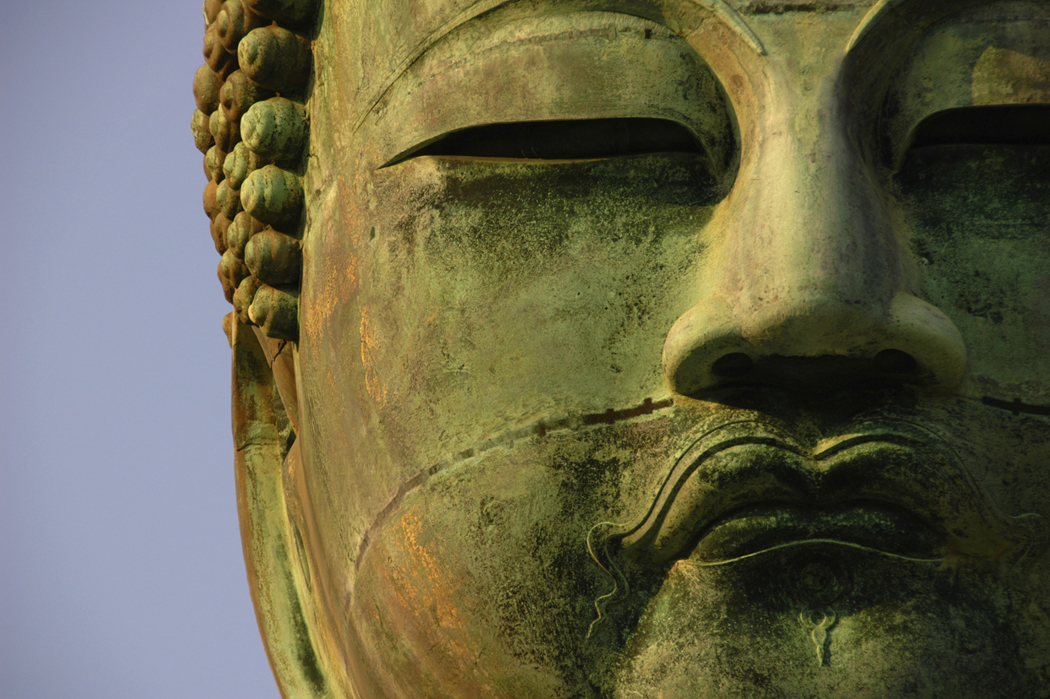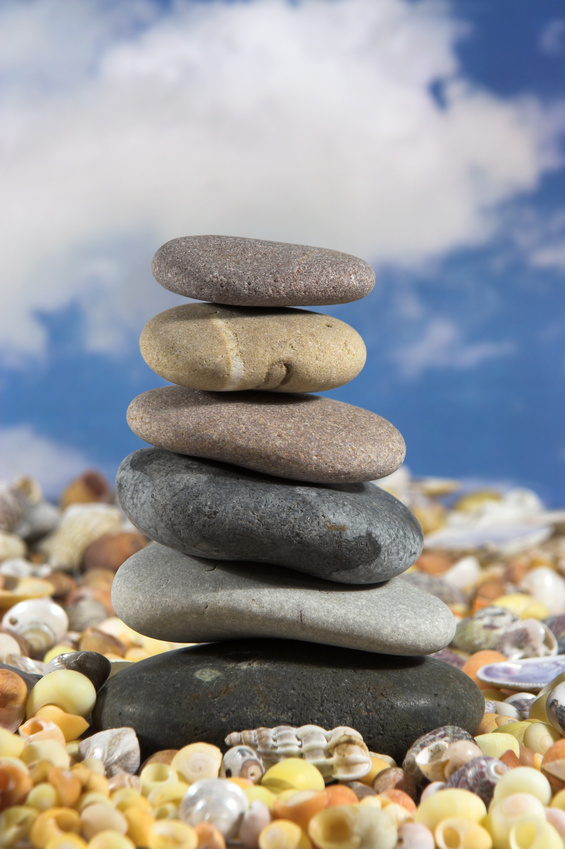Excellent read! Leaders who lead with fear spread fear, leaders who lead with empathy spread empathy. Are you in a ME or WE workplace?
Category: Mindfulness
Excellent read! Leaders who lead with fear spread fear, leaders who lead with empathy spread empathy. Are you in a ME or WE workplace?
The quote of today: Happiness
Happiness cannot be found
through great effort and willpower,
but is already present, in open relaxation and letting go.Don’t strain yourself,
there is nothing to do or undo.
Whatever momentarily arises in the body-mind
has no real importance at all,
has little reality whatsoever.
Why identify with, and become attached to it,
passing judgment upon it and ourselves?Far better to simply
let the entire game happen on its own,
springing up and falling back like waves –
without changing or manipulating anything –
and notice how every thing vanishes and
reappears, magically, again and again,
time without end.Only our searching for happiness
prevents us from seeing it.
It’s like a vivid rainbow which you pursue without ever catching,
or a dog chasing its own tail.Although peace and happiness do not exist
as an actual thing or place,
it is always available
and accompanies you every instant.Don’t believe in the reality
of good and bad experiences;
they are like today’s ephemeral weather,
like rainbows in the sky.Wanting to grasp the ungraspable,
you exhaust yourself in vain.
As soon as you open and relax this tight fist of grasping,
infinite space is there – open, inviting and comfortable.Make use of this spaciousness, this freedom and natural ease.
Don’t search any further.
Don’t go into the tangled jungle
looking for the great awakened elephant,
who is already resting quietly at home
in front of your own hearth.Nothing to do or undo,
nothing to force,
nothing to want,
and nothing missing.Emaho! Marvelous!
Everything happens by itself.
A Spontaneous Vajra Song by Venerable Lama Gendun
Empathy and loving-kindness: what can it do for you?
 Today I want to write about something I came across when learning to practice mindfulness which I thought was extremely strange and funny at the same time. I am sure that many of you will smile when you read this as you might have experienced the same.
Today I want to write about something I came across when learning to practice mindfulness which I thought was extremely strange and funny at the same time. I am sure that many of you will smile when you read this as you might have experienced the same.
I actually want to talk about the “loving-kindness meditation”[1] and how it can impact us. The loving-kindness practice is actually an old Buddhist practice called “Metta Bhavana”[2] which exists since over 2500 years. It is fairly easy to do as you simply need to direct ‘loving-kindness’ to yourself wishing you happiness, fulfillment, peace (as if you would give yourself a big hug) and then let the feeling envelope you in order to be subsequently able to wish the same to a good friend or dear person, then to a neutral person and finally to a difficult one, eventually opening up to all human beings. Really quite simple in theory but when I first had to do this, I actually found it quite ok to send these wishes to myself and my loved ones but neutral people and then people with whom I had difficult relationships proved to be really a challenge and even somewhat awkward. Funnily, afterwards, every time I saw the ‘neutral person’ or ‘difficult person’ again, I was kind of expecting something extraordinary to take place which of course never really happened… well, over time, as everything, it becomes easier with training and I actually found myself really wishing people happiness and even developing empathy towards persons I did not particularly like. Suddenly, I saw no apparent reason to dislike them anymore, which I thought was rather strange but actually a relief as it did not bother me any longer and I could focus my attention on something else.[3]
Empathy as we know is one major ingredient of building a trustful relationship with somebody else, be it at work or in private life. As soon as we are interested in another person’s life and issues, listening with attention and providing feedback will establish a solid foundation for any further interactions. Being a coach and a leader this truly is essential as without it, the basis of a relationship would be missing, hence the trust.
In summary, for me personally, the loving-kindness meditation is an excellent tool for training patience, receptivity, and appreciation/empathy. It helps me stay open-minded and non-judging, thus facilitates my work in a multicultural and fast paced environment.
You might want to try it out for yourself:
“May I be well”
“May I be happy”
“May I be free from suffering”[4]
[1] See for example this site for a good explanation of what this meditation is all about : http://www.jackkornfield.com/2011/02/meditation-on-lovingkindness/
[2] See ‘Metta’ on Wikipedia : http://en.wikipedia.org/wiki/Mett%C4%81
[3] See also Charles A Francis’ site who has developed a variation of the loving-kindness meditation called ‘writing meditation’: http://www.mindfulnessmeditationinstitute.org/what-is-writing-meditation/
[4] Search Inside Yourself, Chade-Meng Tan, p.172.
Mindfulness at Work—3 ways to get started
Very nice blog post on the Blanchard LeaderChat!
Very nice blog post on the Blanchard LeaderChat!
4 little hints to find time for your daily mindfulness meditation
 Have you ever thought that you will never be able to meditate as your life is filled with work, children, pets, shopping, cleaning, cooking, gardening etc. etc.? Trust me, you are not alone! On the contrary, when looking around me, I don’t know anybody who could actually not identify with the above. Quite sad I find, as the most precious moments in a day are these couple of moments that you dedicate to yourself and to your own well-being.
Have you ever thought that you will never be able to meditate as your life is filled with work, children, pets, shopping, cleaning, cooking, gardening etc. etc.? Trust me, you are not alone! On the contrary, when looking around me, I don’t know anybody who could actually not identify with the above. Quite sad I find, as the most precious moments in a day are these couple of moments that you dedicate to yourself and to your own well-being.
But the good news is that, if I am able to find time in my busy life, you also can! It is actually quite easy if you start by reminding yourself that 15-20 minutes of practicing a relaxation technique a day can easily be the equivalent of 2-3 hours of sleep[1]… as I can never get enough sleep it seems, the prospect of spending only 15-20 minutes a day meditating and feeling like having slept over 10 hours at night, is really an exciting one for me.
The second thing to keep in mind is that you don’t necessarily need to practice ‘formal’ meditation each and every time but that there are many ‘informal’ ways that can be highly beneficial to you also. Whereas “in formal mindfulness practice, the meditator sits with eyes closed, focusing the attention on the sensations and movement of the breath for approximately 45-60 minutes at a time, at least once a day”[2]; the informal mindfulness practice can basically be carried out in any situation of your life.[3] So, here’s how to make some space for yourself:
1) Use some of the time you spend walking during the day to do it in a ‘mindful’ way. Do you walk with your dog? Walk the children to school? Walk to the train or simply walk to lunch or around the office/your house? Well, just bring full moment-to-moment attention to everything happening in your body while you walk; that’s it! You can actually walk at any speed, slowly or fast. What counts is that you are fully into what you are doing.[4]
2) Take one of the routine actions you perform during the day (washing, cooking, brushing your teeth etc.) and start doing it mindfully. Concentrate on the action itself and clear all other thoughts in your mind. What are you feeling? What are you smelling/tasting?
3) Eat one meal a day mindfully, really tasting what you eat and being fully there… it can be as short as 10 minutes or as long as a full meal. Focus on the texture of the food, the different sensations you might have etc.
4) Take 15 minutes of out of your lunch/coffee break or fix a meeting with yourself in your calendar. Find a quiet space, be it a cubicle, your car or your kitchen and concentrate on breathing and clearing your mind. Every time your thoughts wander away, gently bring them back.
It truly can be as simple as that… try it out and write back to me!
Let me finish this post with a quote I find very inspirational:
If we learn to open our hearts, anyone, including the people who drive us crazy, can be our teacher ~ Pema Chodron[5]
[1] Just search for this on the internet and you will find multiple articles on the subject, such as http://www.angelfire.com/hi/TheSeer/technique.html for example.
[2] Free medical dictionary: http://medical-dictionary.thefreedictionary.com/meditation
[3] Read for example the Chapter ‘Mindfulness Without Butt on Cushion”, p. 51 et seqq. in “Search Inside Yourself” from Chade-Meng Tan.
[4] See also ‘Walking meditation’ in “Search Inside Yourself”, p. 55-56.
[5] Found here : http://mindfulproductivity.net/2012/03/12/mindfulness-quotes/
Mindfulness Helps You Become a Better Leader
Mindfulness Helps You Become a Better Leader
Excellent article by by Bill George, professor of management practice at Harvard Business School and former chair and CEO of Medtronic, published by the HBR blog.
If You’re Too Busy to Meditate, Read This
If You’re Too Busy to Meditate, Read This
Harvard Business Review Article by Peter Bregman
